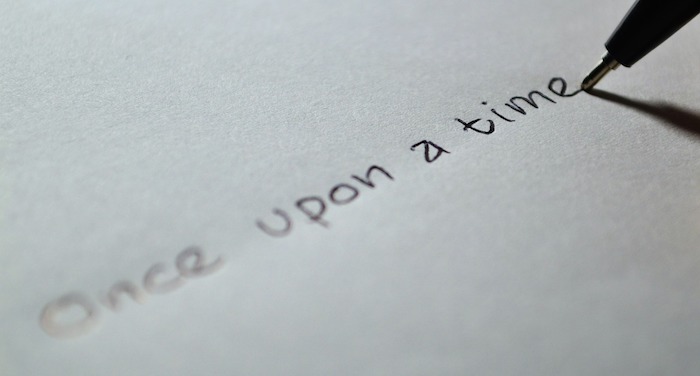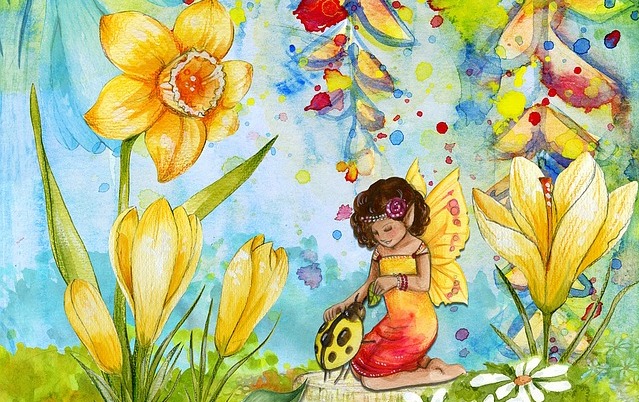Are eBooks Creating New Opportunities for Short Story Writers?
At the end of the 19th and beginning of the 20th centuries, short stories were arguably the most popular form of fiction in America. Since then the short story has taken quite a hit, but digital publishing is poised to bring the literary form back into the public view.

There was a time in literary history when short stories were not only the most popular form of fiction in America, but short fiction was the most profitable sort of fiction for writers to pursue. Writers of short fiction had a wide variety of magazines they could sell their work to that were eager to publish short stories, and the pay from many of those sources was considerable – far better than a writer could make from novel-length fiction.
In the 1800s, Hawthorne, Melville and Poe all supplemented their meagre novel-writing income with short stories. In the first half of the 20th century, a number of high-profile American magazines such as The Atlantic Monthly, The New Yorker, Scribner's, The Saturday Evening Post, Esquire, Harper's Weekly, and The Bookman published short stories in each issue, and the demand for stories was so great that F. Scott Fitzgerald reportedly wrote short stories to pay his many debts.i
During this period, Fitzgerald was paid $4,000 for one story by the Saturday Evening Post. That might be the equivalent of receiving $40,000 from the sale of a story today. As late as the 1950s, John Updike said he could support his family by selling half a dozen stories a year to the New Yorker.ii
Today, well-paid short story magazine markets are rare, and the competition for those pages is fierce. Although there is no shortage of writers creating short stories, the print markets where a relatively unknown writer is likely to get a piece of short fiction published do not pay very well, and even so, are highly competitive.
Although the print landscape for short fiction looks bleak, digital publishing stands poised to bring about a resurgence in the short story. While print anthologies of short stories are being published less frequently than ever beforeiii, and fewer magazine pages are being devoted to the form, short fiction in digital form is increasing in popularity.
The limitations of print – page count requirements and production cost based on scale – do not affect the ebook publisher to the same extent. A story too short to be published in print on its own economically can be published as a digital short at a price that is not only commensurate with its length but also appealing to consumers.
Publishers such as Scholastic have been experimenting with short fiction in popular series. After Christmas 2011, Scholastic offered a series of seven short stories based on the 39 Clues series in digital form for $0.99 each. After two weeks, several of the stories are still in the top 100 bestsellers in Amazon's Children's books and Children's Kindle Fiction categories.
Early in 2011, Amazon created a curated line of short fiction and non-fiction called Amazon Singles. These short stories and articles are priced between $0.99 and $4.99, though the majority are below $2.99. Singles titles range from fiction from traditional publishing houses, such as David Baldacci's "No Time Left," to long-form journalism pieces such as those published by Byliner. Publishers Weekly reported in July that six Singles titles had reached the top 20 in the Kindle bestseller list.iv
Other authors have released short stories and novellas in ebook formats with varying success.v Some use short stories as an inexpensive way to reach readers, others consider their short stories the bread and butter of their writing income. Anecdotal evidence suggests that single stories outsell bundled works or anthologies.vi
No longer do books need to fit in a specific page count to be marketable. The digital format can work for an article as well as it can for an epic novel.
Trey Ratcliff, founder of ebook publishing company Flatbooks, wrote an article for GigaOM in which he explained that readers tend to prefer the length of his instructional books to be approximately 50 pages long. An ebook can't be judged by the width of its spine, so the content matters more than the filler. He writes, “ ... if you were in the airport bookstore, no one would think a 50-page book on business to have anything significant inside of it. We’ve all been brainwashed in a way. Thankfully, none of that matters with e-books.”vii
The same may hold true with fiction. As long as a reader knows what to expect when purchasing a short story, the plot and writing matter more than the number of words used to tell it.
While the short story market has yet to explode, the popularity of digital books and reading devices should be considered a positive development. While short fiction might never again achieve the popularity it had in the early part of the 20th century, it can once again become a style of literature capable of supporting a writer's career.
Notes
i“Short story - Wikipedia, the free encyclopedia”, n.d., http://en.wikipedia.org/wiki/Short_story.
iiWilliam Boyd, “Brief encounters,” the Guardian, October 2, 2004, sec. Books, http://www.guardian.co.uk/books/2004/oct/02/featuresreviews.guardianreview38.
iii“Short Stories – Do They Sell? -”, n.d., http://www.supaproofread.com/article_info.php?articles_id=86.
iv Gabe Habash, “Kindle Singles Gains Traction,” PublishersWeekly.com, July 8, 2011, http://www.publishersweekly.com/pw/by-topic/digital/content-and-e-books/article/47935-kindle-singles-gains-traction.html.
vLindsay Buroker, “How Well Does Short Fiction Sell in Ebook Form?”, http://www.lindsayburoker.com/e-publishing/how-well-does-short-fiction-sell-in-ebook-form/.
viLindsay Buroker, “Short Stories vs. Short Story Collections–Which Sell Better?”, http://www.lindsayburoker.com/e-publishing/ebook-short-stories-vs-collections/.
viiTrey Ratcliff, “Why e-books will be much bigger than you can imagine,” GigaOM, January 16, 2012, http://gigaom.com/2012/01/16/ratcliff-e-books/.
Read These Next
Marketing to Libraries
Don’t discount libraries as a source of steady orders for your books. U.S. libraries spend over 700 million dollars annually on print materials.
Walking on a Rainbow - How I Became a Children’s Book Author
The world of children’s book publishing is extremely competitive, to say the least. It takes hard work, dedication, perseverance and commitment to become a published author.
Cashing in on Christmas: Writing and Marketing Christmas Books
Christmas, undoubtedly, is the most commercial time of the year. The fact that 25% of trade books are bought as gifts makes it a very interesting time for authors, publishers and booksellers as well.






